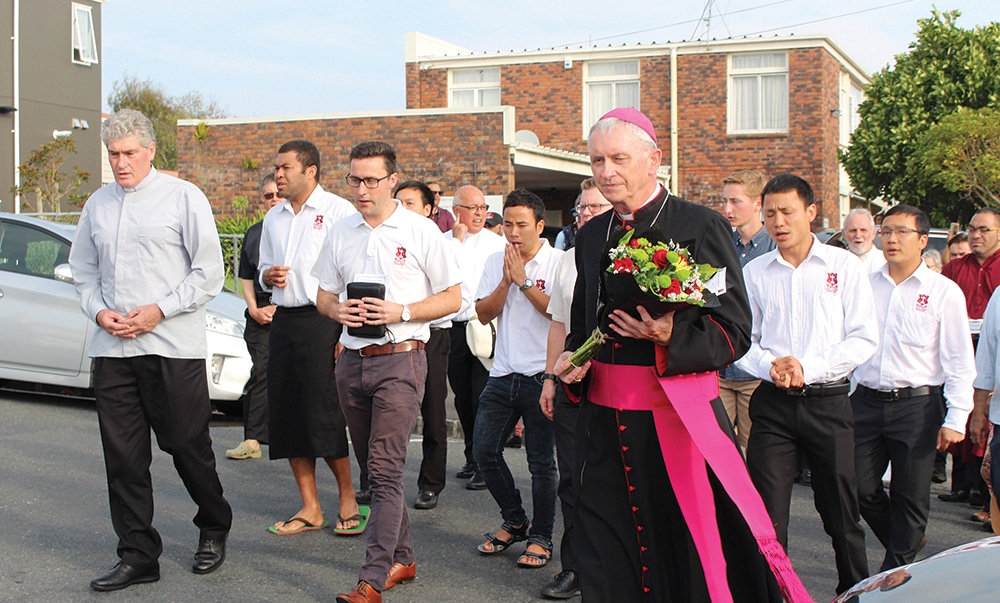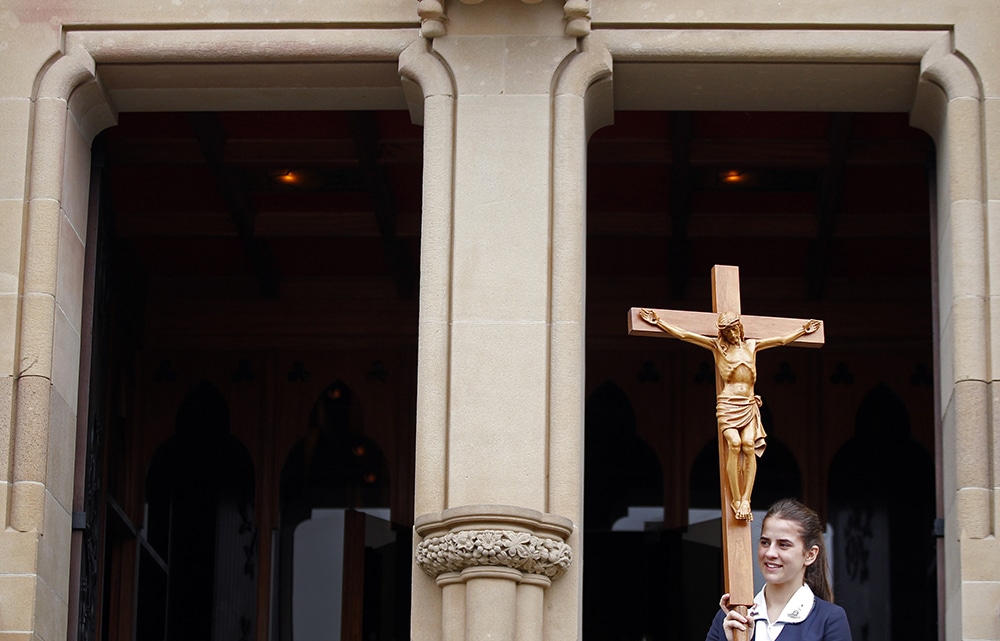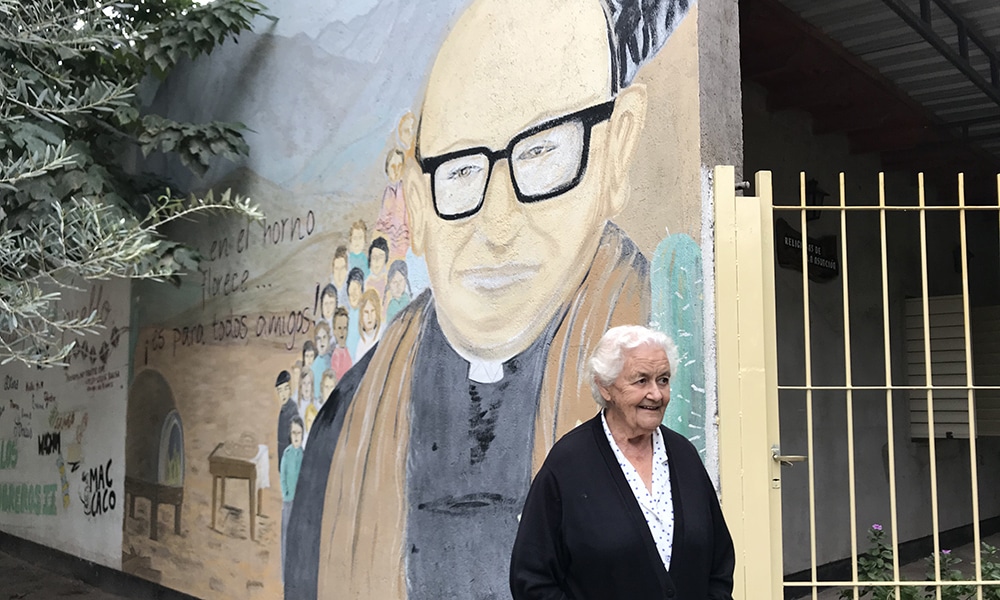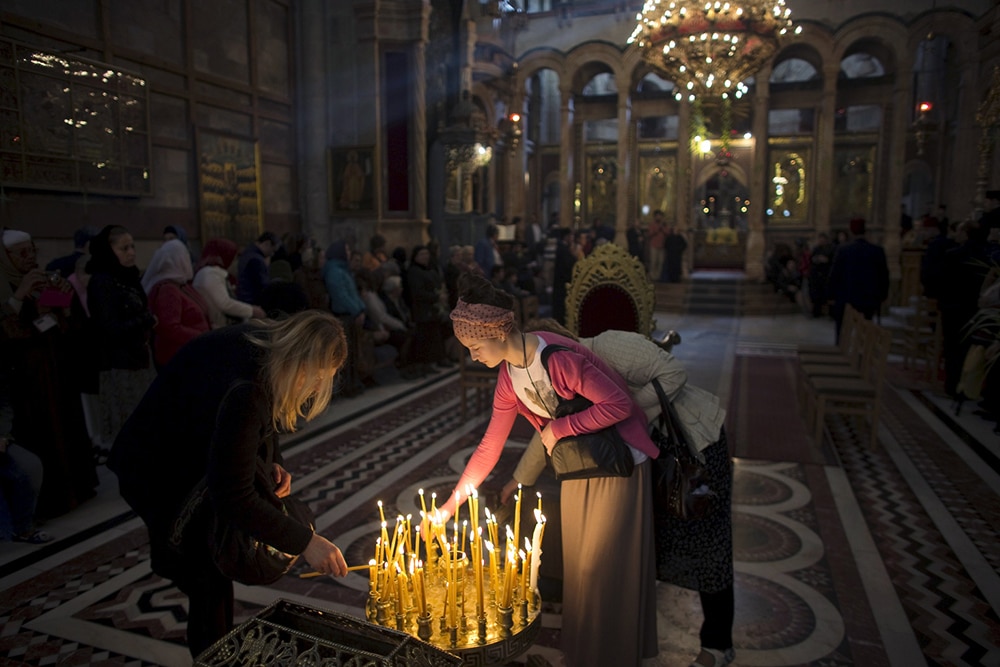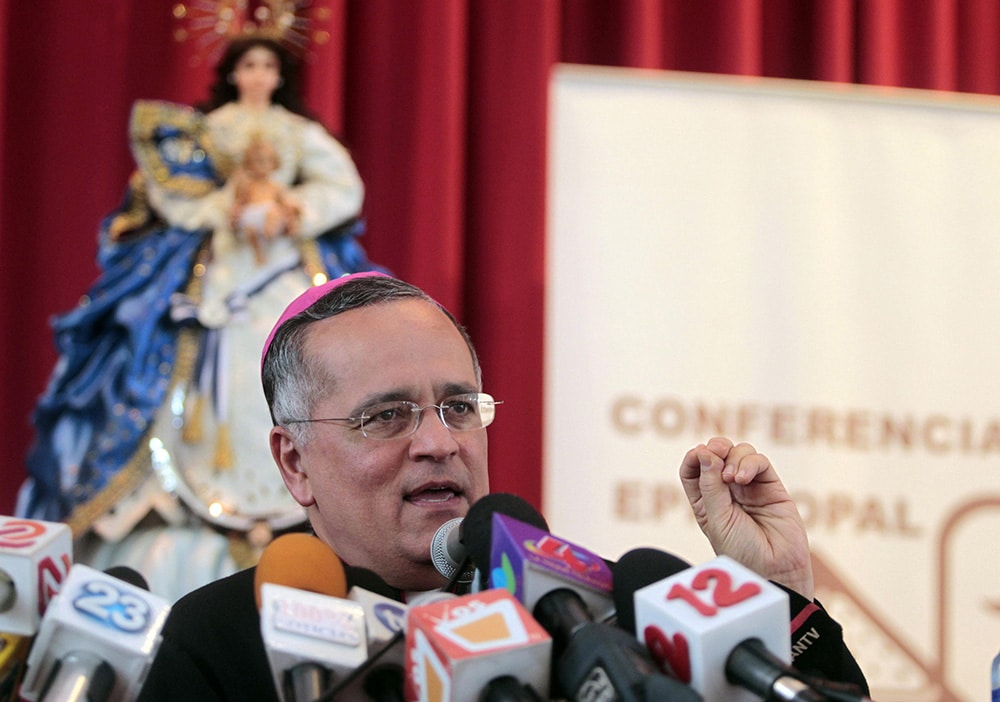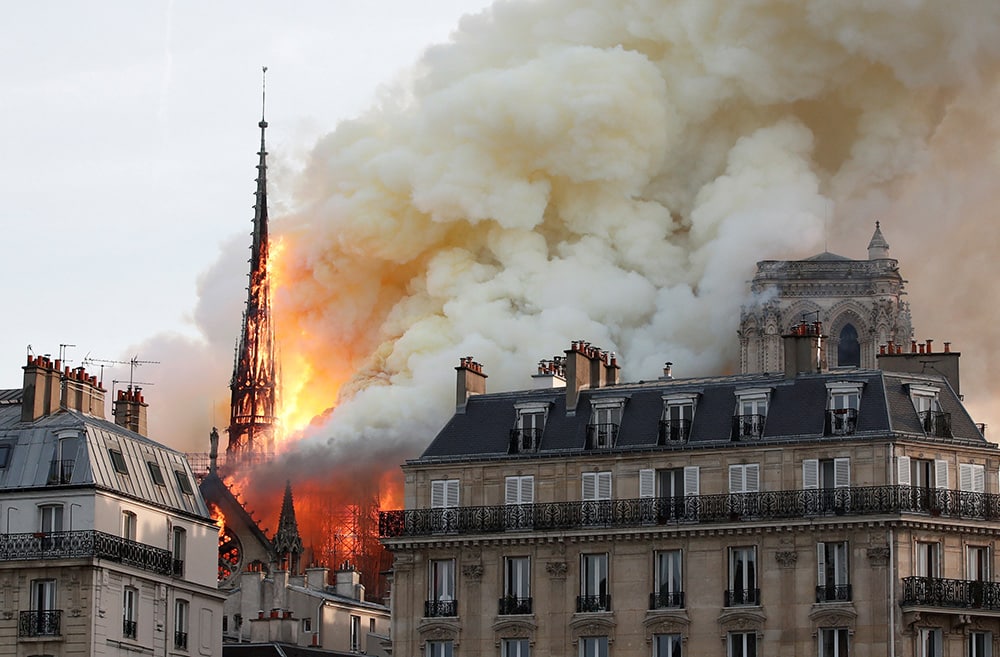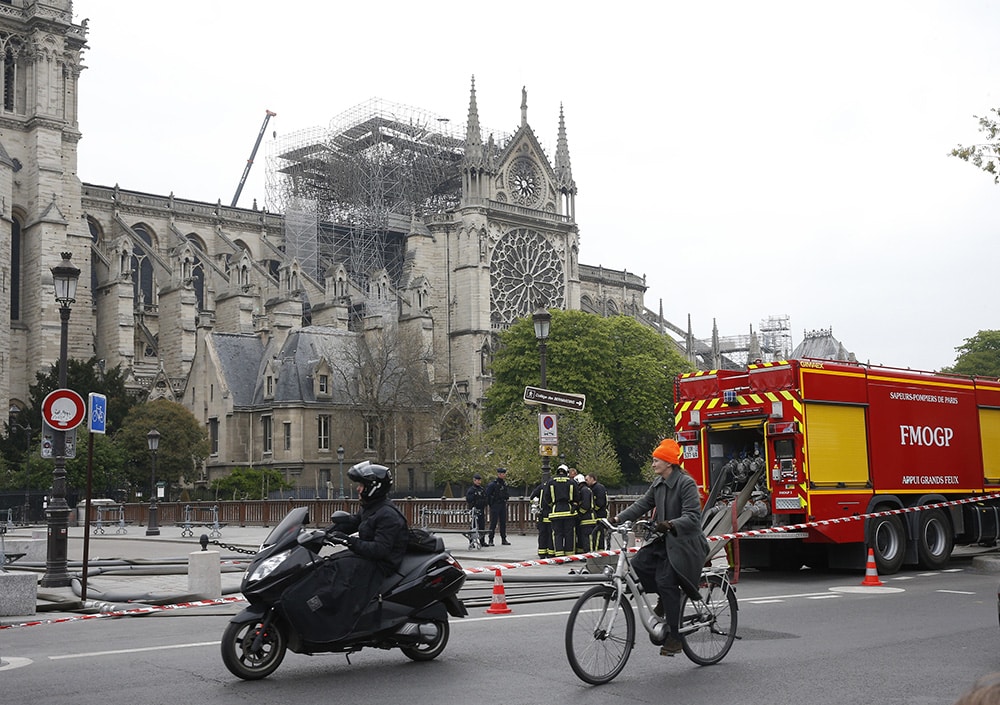“Expel the Jew.”
“Hitler was Right.”
“The Day of the Rope.”
Those were some examples of anti-Semitic graffiti that someone scrawled on a few dozen gravestones last month in a Jewish cemetery in Fall River, Massachusetts. The desecration prompted local and national outrage, and garnered international news coverage.
But sadly, the kind of extremism that motivates someone to desecrate a Jewish cemetery, to march with neo-Nazis in Charlottesville, Virginia, or to shoot dozens of unarmed worshipers in a New Zealand mosque is on the rise in the United States and around the world.
“This kind of extremism is a threat because it’s completely antithetical to what we’re called to be,” said Rebecca Cohen, a program and research specialist with the U.S. Conference of Catholic Bishops’ Interreligious Affairs Office.
Whether it’s called white nationalism or the alt-right, Cohen told Our Sunday Visitor that an ideology that manifests itself in hatred for ethnic and religious minorities, particularly against Jews and Muslims, is incompatible with the Church’s teachings on the dignity of the human person and the common spiritual patrimony shared by the world’s three great monotheistic religions.
“I honestly see this as being based in a fear of the other,” Cohen said, “which is why the focus on education and exposure is so important. And that’s where dialogue is so great, because you sit in that space that is somewhat uncomfortable, but you do it in order to be able to love and understand the other.”
Responding as Catholics
Perhaps more than ever in recent times, observers said the world needs an authentic Catholic response to a rising tide of hatred and intolerance. They cite the documents of the Second Vatican Council that condemned bigotry and acts of violence toward Jews, Muslims and others.
“We need to draw on the positive aspects in our tradition to counter this,” said Jordan Denari Duffner, a scholar on the Catholic-Muslim dialogue and author of “Finding Jesus among Muslims: How Loving Islam Makes Me a Better Catholic.”
Duffner told OSV that she was sickened by the horrific March 15 attack at two mosques in Christchurch, New Zealand, that killed at least 50 people and wounded dozens of others. The alleged assailant, a 28-year-old Australian-born man who was armed with military-style semi-automatic rifles, opened fire during Friday afternoon prayers.
The suspect, who was later arrested, wrote a 74-page manifesto in which he called himself a fascist, praised white supremacists and railed against Muslims, claiming that they and other “nonwhites” were invading Europe and displacing white Christians with their high birth rates.
“A lot of the things he was saying have become so normalized. A lot of his views on Muslims are ones I have heard among mainstream Catholics. That’s what really troubled me,” said Duffner, who added that Catholics need to be more mindful of how they talk about Muslims and others.
“If someone hears a priest, a friend or a Catholic personality saying negative things about Muslims or fear-mongering about Muslims in some way, we can’t just give that a pass,” Duffner said.
Emboldened by demagogic politicians and using the internet, social media in particular, to network and amplify their movement, white nationalists are acting out. The Anti-Defamation League recently released data showing that white supremacist groups in the United States have increased their propaganda efforts, are organizing more rallies and demonstrations, and are increasingly committing violent crimes, including murder.
On March 27, following criticism that it had not done enough to block hate speech, Facebook announced that it would ban white nationalism and separatism from its social media platform. In 2016, Twitter suspended several accounts affiliated with alt-right groups.
Locked in ideology
The August 2017 “Unite the Right” rally in Charlottesville that attracted thousands of white supremacists from around the country, which resulted in the murder of a counterprotester, put the alt-right movement on the map for many Americans. However, the data shows that this brand of extremism has been on the rise for several years.
“When we talk about the alt-right, I think of anti-Semitism, the idea that the white race is supreme, as well as being anti-Muslim and anti-globalist, which by that I mean the idea that there is a conspiracy of Jews controlling the world’s monetary system,” said Maria Mazzenga, who is an education archivist and adjunct instructor at The Catholic University of America in Washington, D.C.
Mazzenga told OSV that the internet and widespread economic displacement caused by automation and emerging technologies are fueling the alt-right movement. She also suggested that modern society seems to be entering an era of post-Enlightenment thinking that rejects reasoned discourse and human equality.
“When you want to have a reasoned discourse with individuals who think like this, it doesn’t work because they are locked in this ideology,” said Mazzenga, who added that alt-right activists often draw on a traditional and exclusionary form of Christianity that runs counter to the inclusiveness in the post-conciliar Church.
“We need to go back and look at our most inclusive traditions, such as charity,” Mazzenga said. “For more than a thousand years, Catholics have been great at charity and taking care of poor people. That’s one good example of taking care of the marginalized and the excluded.”
Catholic social teaching
Robert Christian, a graduate fellow at The Catholic University of America’s Institute for Policy Research and Catholic Studies, told OSV that Catholic social teaching is “the perfect antidote to the toxic ideologies” infecting the modern world.
“Against racism and xenophobia, the Church teaches universal brotherhood and sisterhood, that each person is made in the image of God, and that racism is an intrinsic evil that violates human dignity,” said Christian, who is editor of Millennial, an online Catholic journal.
“Against anti-Muslim or anti-Semitic bigotry, Church teaching endorses religious freedom and a culture of encounter. Against chauvinistic nationalism, the Church promotes the global common good. Against radical individualism, the Church calls for solidarity and genuine community. Against the call for strongman dictatorships, the Church teaches that each person has a right to participate in their government,” he said.
While the U.S. Catholic bishops and others, including Pope Francis, have denounced bigotry and white nationalism, Christian said the overall Catholic response to the rise of the alt-right, the resurgence of neo-fascism in Europe and the creation of “an alt-Catholic alternative magisterium that attempts to sanctify bigotry, sexism, nationalism and dictatorship,” has been “wholly inadequate.”
“Pope Francis has the strongest record of nearly any Catholic leader, denouncing these ideologies and holding up great Christian Democratic leaders from the middle of the 20th century as positive alternatives,” Christian said. “Nevertheless, addressing neo-fascism, white nationalism, and alt-Catholicism would be the perfect subject for his next social encyclical.”
Stephen Schneck, who recently retired as director of The Catholic University of America’s Institute for Policy Research and Catholic Studies, also told OSV that he hopes to see Pope Francis tackle the rise of extremism in his next encyclical.
“We all know from our catechisms that what these extremists are doing is intolerable. But the bigger questions are: What can the Church do? What can we as Catholics do?” Schneck said. “I think Catholics should look for ways to join together and stand up against this kind of hatred, to shout clearly that this is not in keeping with our faith.”
Brian Fraga is a contributing editor for Our Sunday Visitor.

